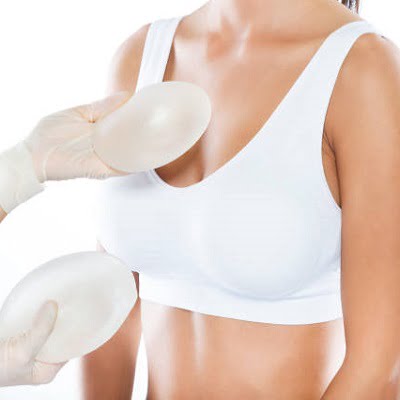
Breast augmentation recovery is usually quite painful and uncomfortable. One factor that prevents many women from having breast augmentation surgery is the possibility of pain throughout the healing phase. Even while the potential outcome is a boost in confidence and fulfilling your cosmetic goals, it is understandable that some ladies don’t want to go through a painful recovery. Most women experience significant discomfort and swelling for the first few days after surgery. But you will manage it with the help of pain medication prescribed by your doctor. If concerns about pain are keeping you from getting breast augmentation, know that SKN Cosmetics in Islamabad has a trained staff who understands how to reduce recovery pain for all of his patients. Read on to learn about How Painful is breast augmentation recovery?
Is Breast Augmentation Surgery Painful?
Painful, but not as bad as you might imagine. Advil or Tylenol can be used to treat any discomfort you may experience after surgery because the pain of recovery is actually so minimal. You will undoubtedly feel pain during your recovery from breast augmentation surgery. Pain management is a major part of recovery. Your doctor will do their best to ensure that you are comfortable during the healing process. However, they may also recommend using over-the-counter medications like Advil or Tylenol to supplement their efforts.
Immediately After Surgery:
You will feel less uncomfortable throughout this phase of your rehabilitation. As you are awake from the general anesthesia used for your operation, you will sense an increase in weight on your chest from the implants. Moreover, you will feel some little soreness or tightness in the breast. Most of the time, though, the general aesthetic will leave you sluggish and confused.
After a Few Hours:
Your breasts may still feel a little tender or sore in the hours after your surgery. Some females, particularly those with implants that are positioned beneath the muscle, compare the sensation to pulling a muscle. The discomfort can be controlled with the aid of painkillers and cold compresses. Around the incision sites, you might also experience swelling and bruising. This is typical, and it will pass in a week or two. For a few days following your breast augmentation procedure, your breasts may still feel tender and sore. Your surgeon may suggest painkillers to help you manage any post-surgery pain in order to reduce discomfort.
Days After Surgery:
The 3 to 5 days after your treatment are probably when you experience the most discomfort. This is because your body is adjusting to the procedure and there may be some irritation around your incisions and implants. The healing process has also started. You should follow the post-operative instructions given by your doctor carefully. During this time, it is important to rest and be gentle with yourself. It is natural to experience some pain and discomfort during the recovery process. Most women have slight aches, cramps, and tightness, but this level of discomfort often subsides within a week and is easily treatable with over-the-counter drugs. However, if the pain becomes severe, or does not subside after a week, it is important to contact your doctor for advice.
Weeks After Surgery:
Your soreness will progressively go away in the weeks after your surgery as you recover from the treatment. Most women experience only mild soreness and minor to no pain within two to three weeks. Most of your pain should be gone by the time one month has passed since your operation. In some cases, the soreness may take up to six weeks to go away. This depends on how quickly your body is able to heal from the surgery. Ultimately, it is up to your body to heal from the surgery.
After One Month:
Patients will benefit from resuming 50% of their normal function by the third postoperative week of healing. You might still experience a little soreness and swelling in the second, third, and fourth weeks after surgery, but the challenging portion is done. Continue to avoid physically demanding activities, especially ones that call for you to lift weights. Plan to take up to three weeks off if your job is physically demanding.
After 2 Months:
Depending on how well your body heals, you should be close to full recovery after around two months. If you can return to your regular activities, your doctor will inform you. During this time, it is important to rest and follow all of your doctor’s instructions. It is likely that your doctor will prescribe physical therapy to help you regain mobility and strength. It is also important to eat a healthy diet to ensure that you are getting the nutrients and energy your body needs to heal. Additionally, if your doctor suggests over-the-counter medications to manage pain, it is important to take them as directed.
What Can You Expect During Your Recovery?
Although your recovery time will extend for a few weeks, the actual recuperation is not too difficult. You will need to adhere to straightforward post-operative instructions in order to go through each stage of your recovery. Your post-operative instructions may include the following:
- Get lots of sleep.
- Abstain from vigorous activity.
- Only engage in modest exercises, like walking.
- On your back, snooze.
- Avoid taking baths.
- Avoid places with a lot of heat, such as saunas and hot tubs.
Other recovery-related instructions will be given to you, including when you can take a shower, what kinds of soaps to use, and what kinds of clothing to wear, such as loose, cotton clothing that doesn’t need to be pulled over your head. Additionally, we will provide you with specific resources for the most crucial aspects of your rehabilitation, including medications, bras for post-op recovery, and incision care.
- Recovery Bras.
- Incision Care.
What Factors Determine How Much Pain You Should Expect?
The amount of discomfort you will experience following your augmentation surgery will depend on a few additional things in addition to your personal level of pain tolerance. These variables include your past pregnancies as well as implant size, kind, and position.
- Implant Size.
- Implant Type.
- Implant Position.
- Previous Pregnancy.
Book Your Consultation:
If you want to have the best experience for your best augmentation in Islamabad recovery, you may contact us. Dr. Naveed Azhar is a consultant surgeon at SKN Cosmetics who has experience of over 20 years in the field. So, call us if you want a smooth process. You can also fill out the form given here.







Book your Appointment